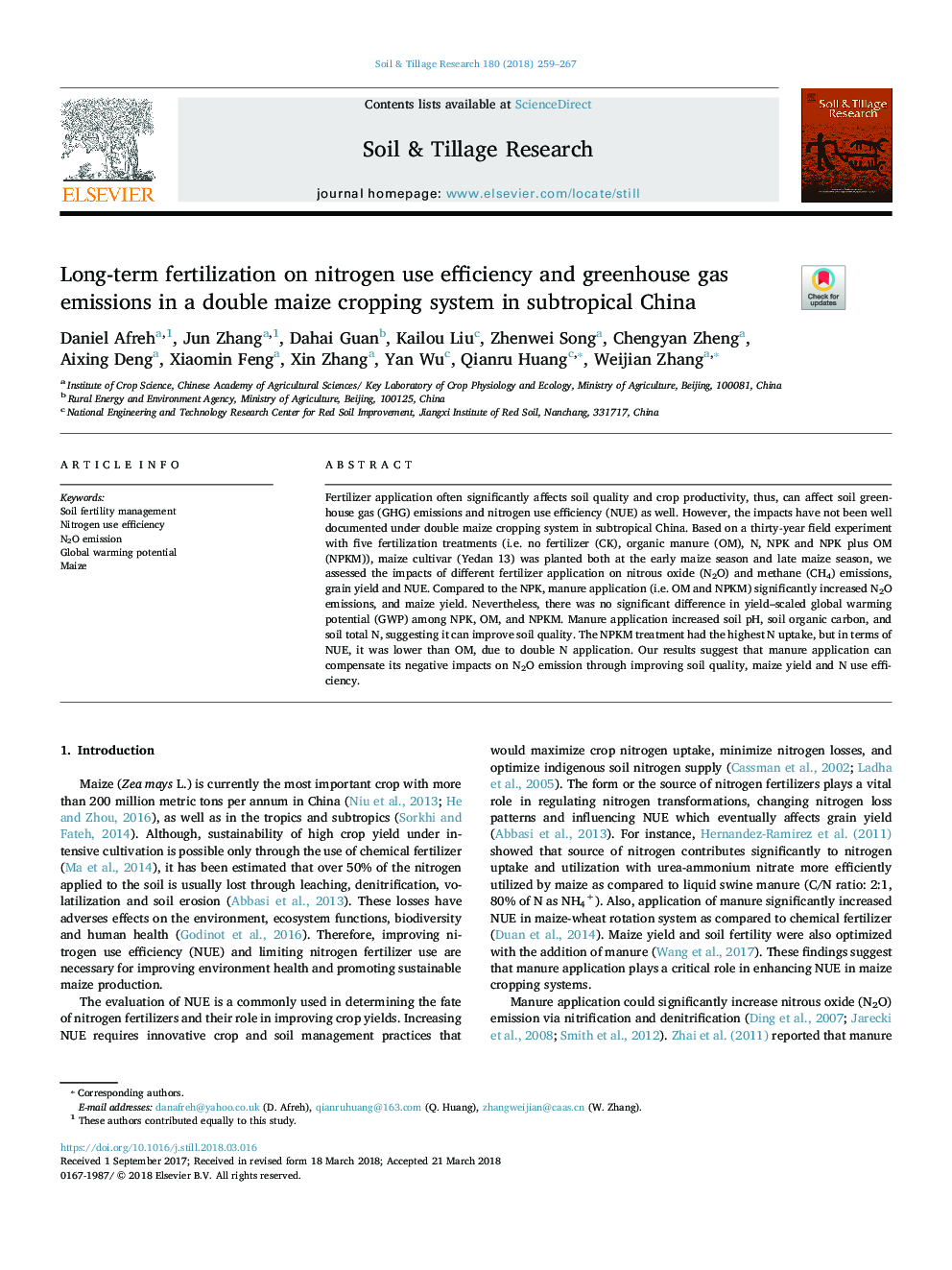| Article ID | Journal | Published Year | Pages | File Type |
|---|---|---|---|---|
| 6773138 | Soil and Tillage Research | 2018 | 9 Pages |
Abstract
Fertilizer application often significantly affects soil quality and crop productivity, thus, can affect soil greenhouse gas (GHG) emissions and nitrogen use efficiency (NUE) as well. However, the impacts have not been well documented under double maize cropping system in subtropical China. Based on a thirty-year field experiment with five fertilization treatments (i.e. no fertilizer (CK), organic manure (OM), N, NPK and NPK plus OM (NPKM)), maize cultivar (Yedan 13) was planted both at the early maize season and late maize season, we assessed the impacts of different fertilizer application on nitrous oxide (N2O) and methane (CH4) emissions, grain yield and NUE. Compared to the NPK, manure application (i.e. OM and NPKM) significantly increased N2O emissions, and maize yield. Nevertheless, there was no significant difference in yield-scaled global warming potential (GWP) among NPK, OM, and NPKM. Manure application increased soil pH, soil organic carbon, and soil total N, suggesting it can improve soil quality. The NPKM treatment had the highest N uptake, but in terms of NUE, it was lower than OM, due to double N application. Our results suggest that manure application can compensate its negative impacts on N2O emission through improving soil quality, maize yield and N use efficiency.
Related Topics
Physical Sciences and Engineering
Energy
Renewable Energy, Sustainability and the Environment
Authors
Daniel Afreh, Jun Zhang, Dahai Guan, Kailou Liu, Zhenwei Song, Chengyan Zheng, Aixing Deng, Xiaomin Feng, Xin Zhang, Yan Wu, Qianru Huang, Weijian Zhang,
